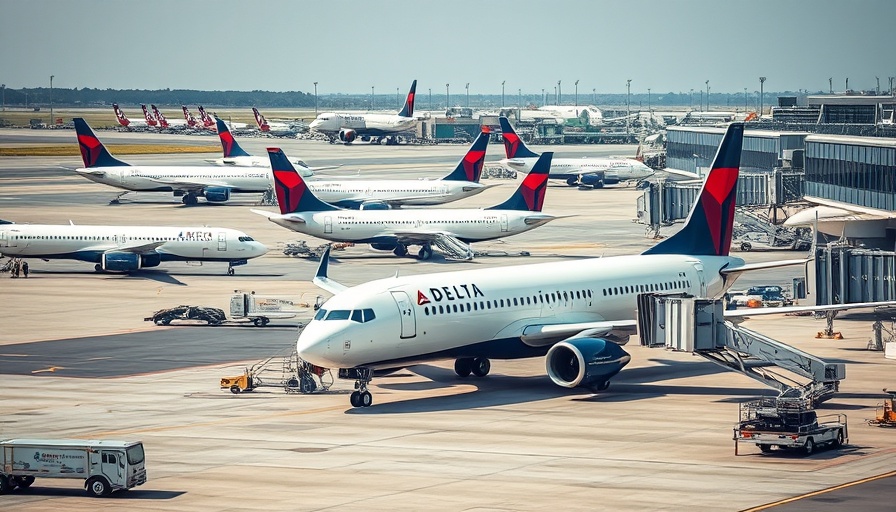
Understanding Delta's AI Pricing Program
Delta Air Lines has recently found itself at the center of a controversy regarding its use of artificial intelligence (AI) in airfare pricing. Amid accusations of using customer data for what some lawmakers decried as “surveillance pricing,” the airline has emphatically denied any such practices. Delta Chief External Affairs Officer Peter Clark articulated the company’s position, stating that the AI system is intended as a supportive tool for decision-making, not a method for personalizing prices based on individual customer behaviors.
AI as a Decision-Support Tool
At its core, Delta's AI initiative is described as a “super analyst” that aids human revenue managers by forecasting demand and adjusting pricing. This encompasses an analysis of patterns that have traditionally dictated airfare: booking behaviors, competition, and operating costs, among other factors. According to Delta President Glen Hauenstein, the AI has so far been integrated into about 3% of their domestic routes, with ambitions to ramp this figure to 20% by the end of 2025. The AI tool, as highlighted by Delta, has even suggested lower fares in instances where demand for seats was lacking, countering perceptions of potential price gouging.
Public Response and Legislative Scrutiny
The airline's use of AI has not gone unnoticed by officials on Capitol Hill. Senators Mark Warner, Ruben Gallego, and Richard Blumenthal raised concerns in a letter, demanding transparency about the practices behind Delta's pricing strategies. This scrutiny comes in light of a broader national dialogue regarding the ethical implications of AI in various sectors, particularly concerning privacy and consumer protection.
Counterarguments and Industry Responses
In response to Delta's plans, American Airlines CEO Robert Isom publicly criticized the use of AI for pricing, claiming it is inappropriate. This indicates a divide within the industry on how airlines should approach pricing strategies as technology evolves. While American Airlines expresses hesitance, Delta's position illustrates a commitment to innovate responsibly within the bounds of existing regulations. The concern is valid, as many customers gravitate toward companies that prioritize fairness and transparency in their pricing methods.
The Road Ahead for AI in Aviation
As Delta navigates this complex landscape of AI integration, the company is also expanding the potential applications of technology into other realms, such as customer service and maintenance predictions. This shift represents an evolving narrative in air travel, where operational efficiency could lead to more significant savings and enhanced experiences for customers.
Empowering Consumer Awareness
Understanding how technology, like AI, influences the prices we pay is vital for travelers. As more airlines adopt similar strategies, consumers must remain informed and vigilant. The ethical discussions surrounding AI in pricing are likely to grow, encouraging travelers to voice their opinions on fairness and transparency. Engaged consumers can influence airline policies, making their concerns heard to ensure they are treated fairly.
Delta Air Lines is positioning itself at the frontier of AI integration within the aviation industry, but it remains crucial for consumers to hold companies accountable. As this story unfolds, the balance between technology and ethical business practices will remain at the forefront of discussions, driving the industry towards a more informed and considerate approach.
 Add Row
Add Row  Add
Add 




Write A Comment